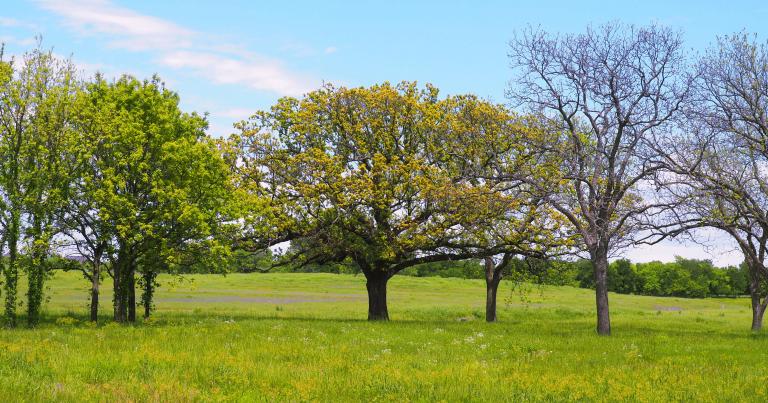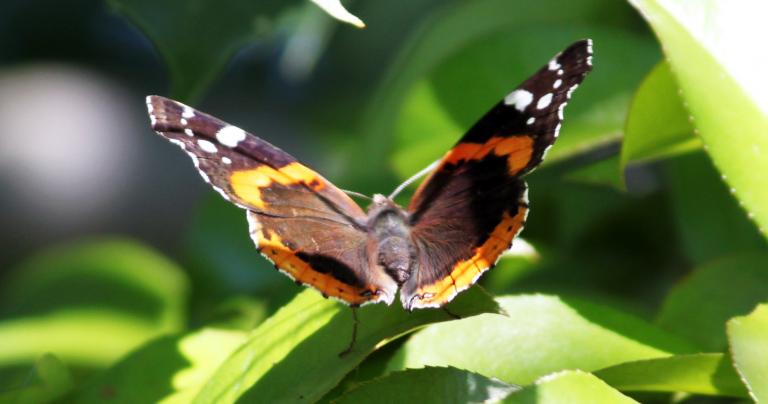Last week a text-only meme came across my Facebook feed that grabbed my attention. It said:
In case no one told you today:
• Life is decay
• You will always be truly alone
• You are expendable
• Nothing happens for a reason
• You’re doing to die
• You will be forgotten
• It will be like you never existed.
My initial reaction was that the first six lines are true but incomplete and the final line is blatantly false. But the more I think about it, the less I think “true but incomplete” is an adequate response. Because as a Pagan I’m committed to the idea that while life is difficult and often painful, ultimately it’s beautiful and good.
Is this just a different religious outlook? Someone shared it from a Buddhist humor group, and while I know a little about Buddhism I’m far from an expert on it. So I ran it by UU Buddhist and fellow Patheos blogger James Ishmael Ford. His opinion matches mine: while there are “Buddhist-ish” concepts in it, it’s pretty much nihilism presenting as dark humor.
This isn’t some heresy that needs to be stamped out. If you got a laugh out of it, great. But it presents an opportunity to examine some deeper religious and philosophical thoughts, and that’s a conversation worth having.
Life is a process of growth and decline
We’re born, we grow, we live, we decline, we die. So does every other living thing in this world, in one way or another. “Life is decay” is no more accurate than “life is birth” or “life is growth.”
Life is a bargain. We get growth, happiness, and joy. We also get decay, sadness, and pain.
Some say that without the bad we would never appreciate the good – without death, life would have no urgency and thus no meaning. Perhaps that’s true – I’m not sure. What I am sure of is that without change things get boring in a hurry, and that’s no way to live.
Life isn’t a fair bargain. Some get much and others get little. Our job – if we choose to accept it – is to make sure everyone gets enough. Accepting that job is its own reward.
You are never truly alone
Humans are not solitary creatures. We live in families, communities, and nations. If we have no family or if our family abandons us, we make new families.
But even if we are cut off from our fellow humans, we’re still surrounded by other living persons: animals, plants, natural features and forces. And our Gods and ancestors are always close to us.
We have the choice to accept these connections or to refuse them. If you want to be alone, you can – most of the time, anyway. I like being alone, but I’ve been alone a little too much lately. If some of the connections are closed to me now, I need to focus on the ones that are always available.
You are valuable
On one hand, the nihilist meme is right: all individuals are ultimately expendable. Long term survival in the material world is for groups: families and species and such. And just because you’ve ended up on the good side of life’s unfair bargain so far doesn’t mean you’ll continue to be on the good side indefinitely.
But while these collective entities have a life of their own, they are all composed of individual persons. A nation may be more than its people, but without its people it ceases to exist. You and me and everyone else are necessary, and because we are necessary we are valuable.
You are free to choose your own path
I detest the phrase “everything happens for a reason.” It assumes there’s a grand plan somewhere in the universe, and that implies monotheism. I see no evidence there’s a master plan anywhere. My response to “everything happens for a reason” is “yes, and the reason is that you make bad decisions” (which isn’t always true either but usually conveys my dissatisfaction with that trite cliché).
This is a good thing. Because there is no master plan we are free to choose our own paths. Not entirely free – even those with considerable privilege still have limitations, and we constantly run into other free persons who are bigger and stronger than us, like tornados and viral pandemics.
We are not the pawns of some supreme being, nor of the Many Gods. We are free to choose our own paths and make of them what we will, or what we can.
We live on
Here again the nihilist meme is literally true. You are going to die, as every living thing before or after you has died or will die. The question, though, is “what is death?” Is it the end of existence? Or is it simply the doorway into a different phase of life?
While there is no proof – one way or the other – the evidence of past life memories, near death experiences, and my own ecstatic experiences tells me that consciousness is immortal. I’ve blogged about this on numerous occasions – perhaps the best one is One Pagan’s Thoughts on What Comes After Death from 2017.
Even if I’m wrong and consciousness ends when brain activity ends, we live on in our descendants – of spirit as well as of blood – and we live on in our deeds.
I fear dying badly, but I do not fear death.
We have an obligation to remember those who came before us
This is another case where the meme is true but incomplete. Fame brings a type of immortality, but only for a few, and only for a while. We all know Julius Caesar, but can you name any of the Roman emperors of the 3rd century CE? (I couldn’t). For the vast majority of us, when those who knew us die, we will pass from active memory.
This is why ancestor veneration is such an important part of most religions. I have a short list of ancestors whose names I know – I speak them on a regular basis. One of my daily prayers is that I may live in such a way as to be worthy of being remembered by those who come after me.
Remember your ancestors, and set a good example so your descendants will remember you.
Even the tiniest actions matter
This is where the meme is – if you’ll pardon the expression – dead wrong.
In putting together the upcoming class on Operative Magic, I was reminded of the Butterfly Effect, which is sometimes expressed by saying that a butterfly flapping its wings in Brazil can cause a tornado in Texas two weeks later. It was originated by mathematician and meteorologist Edward Lorenz (1917-2008), whose studies found that a very small change in initial conditions creates a significantly different outcome.
Whether your life lasts a few hours or over a century, the world is changed by your presence. Perhaps in a very small way, but it is changed nonetheless.
How do you want to change the world today?





















